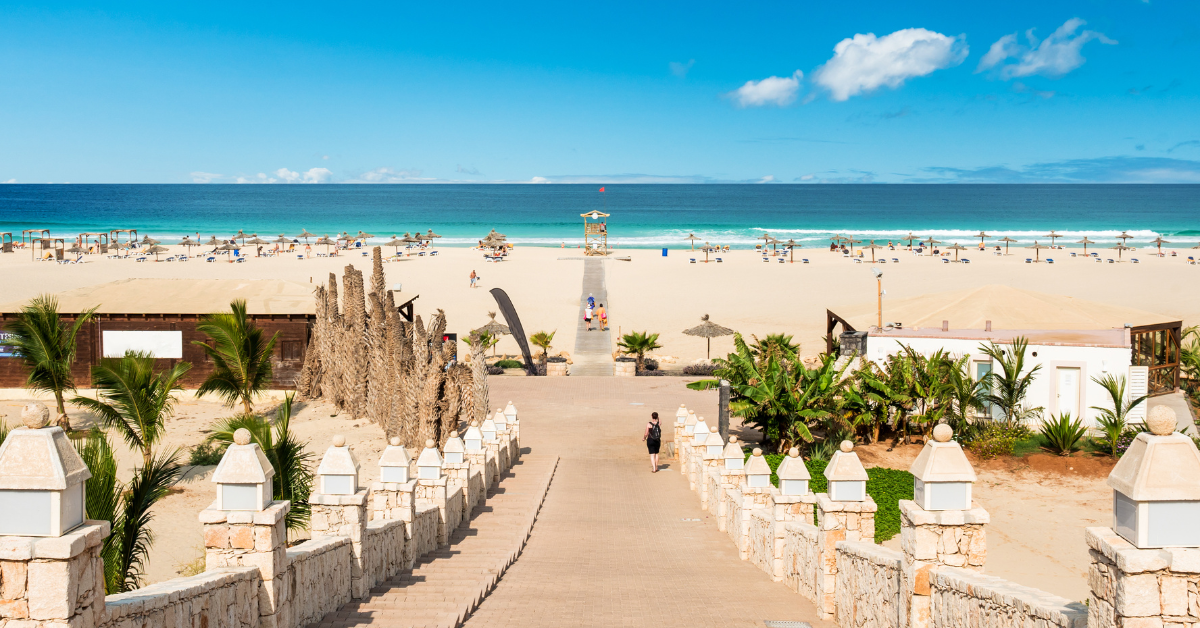Cabo Verde, an island nation in the Atlantic Ocean, is officially known as “Cabo Verde” in Portuguese, meaning “Green Cape.” While in Japanese it is commonly written in katakana, the Chinese language uses the kanji “佛得角.” This article explores the cultural significance, perception in Japan, and the diverse images associated with Cabo Verde.
Official Name and Origins of Cabo Verde
The official name of the country is “Cabo Verde” in Portuguese, literally meaning “Green Cape.” The name originates from the Age of Exploration when Portuguese sailors reached the lush, green cape along Africa’s west coast.
In Japanese, it is written simply in katakana as “カーボベルデ.” In contrast, Chinese uses the characters “佛得角,” which are phonetic transcriptions rather than semantic translations.
Why There Is No Kanji Place Name in Japanese
In the past, Japan often translated foreign place names into kanji. However, after World War II, with globalization and the need for clarity, most foreign names came to be standardized in katakana. As a result, Cabo Verde has no unique Japanese kanji form.
The differences in naming across languages are summarized below:
| Language | Representation | Feature |
|---|---|---|
| Portuguese | Cabo Verde | Official name meaning “Green Cape” |
| Japanese | カーボベルデ | Standard katakana notation |
| Chinese | 佛得角 | Phonetic transcription in kanji |
The Image Japanese People Have of Cabo Verde
Natural and Resort Appeal
Cabo Verde is surrounded by pristine beaches and crystal-clear waters, making it popular as a resort destination in Europe. In Japan, while it remains relatively unknown, it is increasingly seen as a “hidden paradise.”
| Tourist Resource | Feature | Japanese Impression |
|---|---|---|
| Beaches | White sands and clear seas | Envisioned as an exotic resort |
| Volcanoes | Striking natural landscapes | Majestic and powerful |
| Climate | Warm and pleasant | Ideal for long stays |
Music and Culture
Cabo Verde is also known worldwide for its music, especially the genre called “Morna.” The globally acclaimed singer Cesária Évora—nicknamed the “Barefoot Diva”—brought international attention to the country, including in Japan. Thus, Japanese people often see Cabo Verde as “a country of soulful music.”
Additionally, the fusion of European and African traditions in its streets and cuisine gives the nation a strong sense of exoticism.
Cabo Verde Through Sports
Football as a National Strength
Despite being a small nation, Cabo Verde is recognized as a strong football country in Africa. Many of its players compete in European clubs, and the national team regularly qualifies for the Africa Cup of Nations.
| Element | Content | Japanese Impression |
|---|---|---|
| National Team | Competes in major African tournaments | A small but strong football nation |
| Overseas Players | Active in European clubs | Talent on the global stage |
| Football Culture | National sport | A unifying force |
Athletics and Martial Arts
Cabo Verdean athletes also shine in athletics and martial arts, where their exceptional physical abilities attract international attention. Some Japanese have come to know the country through these global competitions.
Economy and Tourism
Tourism is the backbone of Cabo Verde’s economy. Resorts and airports are being developed, and the number of visitors from Europe is steadily increasing.
| Sector | Feature | Link to Tourism |
|---|---|---|
| Tourism | Large number of European visitors | Main source of national income |
| Fisheries | Abundant seafood | Strong appeal in local cuisine |
| Agriculture | Tropical fruits and produce | Attractive for foreign travelers |
Thus, tourism not only supports the economy but also raises Japanese awareness of Cabo Verde.
Conclusion
Cabo Verde has no unique kanji representation in Japanese and is normally written in katakana. In Chinese, however, it appears as “佛得角.”
For Japanese people, the image of Cabo Verde combines several dimensions:
- A resort destination with stunning natural beauty
- A nation of music and cultural richness
- A sports country that shines internationally despite its small size
As tourism, culture, and sports exchanges expand, Japanese recognition of Cabo Verde is likely to grow.






